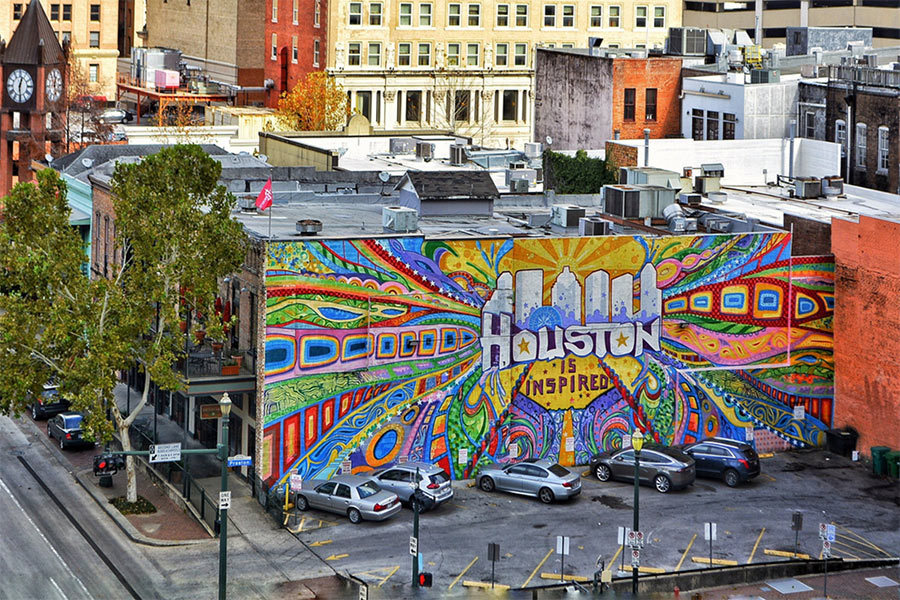
- Cedar Port Industrial Park in Baytown Sells 50 Acres, Warehouse to Venezuela-Based PBP Inc. [HBJ]
- New Idea to Save the Astrodome Involves a Public-Private Partnership Where Tax Credits Would Cover Renovation Expenses [Houston Chronicle]
- Fertitta Unveils Villas at The San Luis Resort at 5222 Seawall Blvd. [Galveston County Daily News ($)]
- Gator Fabrication Moves into Revamped, Former JM Eagle Plant Property in Conroe [Prime Property]
- Tema Gets $37.5M Construction Loan for 224-Unit Luxury Apartment Project Capella Museum District at 1699 Hermann Dr. [Prime Property]
- Repsol’s New Office Building in Research Forest Lakeside in The Woodlands Has Achieved LEED Gold Designation [Prime Property]
- About 700k-SF of Sublease Space in West Houston is ‘Good as New’ [HBJ]
- The Groves Will Be the First Residential Community in Texas To Receive Comcast’s ‘Fiber-to-the-Home’ System [Prime Property]
- 3 out of 4 Houston Millennials Plan to Buy a Home in the Near Future, According to Apartment List [HBJ]
- Antone’s Famous Po’boys Redesigning TC Jester and San Felipe Locations, Opening a Third in the Rice Village Area or Downtown [HBJ]
- I-45N, US-290, and US-59S HOV Lanes To Boot Solo Houston Commuters During Rush Hour Starting Aug. 3 [HBJ]
- Vonlane To Expand Luxury Commuter Bus Line with Austin-Houston Service Starting in January [Austin American-Statesman via HBJ]
- Brays Bayou, Beltway 8 Had Hardest Rain Fall During Memorial Day Weekend Floods, According to New Report [Click2Houston]
Photo of the Hermann Park Golf Course: Russell Hancock via Swamplot Flickr Pool
Headlines





Taxpayers may not be on the hook in a conservancy model, but the city and county definitely would be through credits so it’s just a matter of double speak. As he clearly stated, the single intent of this option is to simply avoid a vote by the taxpayers and not give them a say in the matter as we’re against him. Saying we can’t tear it down and continually bringing up the demolition cost is a blatant lie followed up with a distraction. The land itself is still worth millions in itself and there’s a huge opportunity to get HLSR, the convention center and the Texans to pony up some funding for a truly purpose built space that benefits all.
.
The only reason Emmett continues to push this and waste valuable time and money is he’s been given a clear directive by his buddies at the HLSR and the Texans to get the building revamped without requiring them to chip in any despite being able to reap huge rewards/profits from it. These are vast and lucrative for-profit businesses, not friends of the taxpayer. Emmett know he’ll have a golden parachute all lined up if he can pull this off without involving taxpayers and a vote.
.
And ‘homeownership interest’ by millenials is a useless metric since affordability is all that matters anyways. Increasing tax rates and a decreasing job/wage market means that if millenials haven’t bought by now, they won’t be in the near future.
I’d love to buy a house. It’s too bad nothing in inventory is affordable.
My plan to convert the Dome into office and storage space for Harris County departments just makes too much sense.
Every single county office inside Loop 610 should be consolidated into a retrofitted Dome full of office spaces and storage areas. You could even put the County Jail inside it.
The county is occupying a lot of downtown office space, and that is an expense that just does not make sense to me.
And if you do it right there is still room for an indoor park and museum.
And to think Ed Emmett took a trip to Germany pretending to be in search of new ideas.
Fahrvergnügen is German for BOONDOGGLE.
Joel,
Your logic about the value being in the land is what brought Astroworld down and the empty lot we have there today… only difference is he’s right about the demo cost. Emmett is working on a way to rehab a building the tax payers own (without additional taxes being requested)… So in my book that’s a win win. I’m not sure what you have against the dome, but getting it fixed up with no tax increase (and the impact it would have to redevelopment around the area) vs spending millions of tax dollars to get nothing but a lot is the most fiscally responsible thing to do.
Methinks there’s a wide gulf between millennials wanting to purchase a home and those who can actually afford to do so. Houston continues to build McMansions and 4-story town homes instead of more affordable homes with a smaller footprint that would be more attractive to millennial buyers.
Re: 3 out of 4 Millennials plan to buy housing in the near future
.
What a ridiculous article – it says the majority of that group plans on buying after 2018. For all I know, it will be 20 years after that so this conclusion isn’t really shedding any new light. I hope they didn’t pay much for this survey results (I could have given them this report for the cost of a strawberry milkshake.)
.
Seriously, as roadchick said, if all we’re building are McMansions and $400,000+ townhomes, we’re really not going to get a lot of millennial neighbors.
Unless a millennial has absolutely no down payment or overwhelming student debt (in which case there basically aren’t any houses that are affordable, but the point is moot), Houston still has many many homes that are affordable. Try Alief, Trinity Gardens, CityPark, etc. etc. It’s millennials’ fault that they fail to consider those areas.
Of course the millennials want a home. What dont they want? When they finally realize they cant afford one they are going to throw a tantrum and want us to make it so they can buy a home.
Local Planner, every single area you just mentioned is already full of millenials matching your description so I don’t think your assessment is correct. it’s just they’re lower income and still can’t afford to buy housing in those parts of towns either, even without student debt.
.
If you’re suggesting the lack of affordability by millenials is only because they’re too spoiled to go buy a home in some of the worst parts of town after going into debt to get a degree to better their lives, then I don’t think you’re going to find many folks willing to have this conversation. Besides, statistics alone would say almost anyone would be better off going into debt to rent somewhere else to avoid living in those places in the first place.
Brian, sorry, but I don’t see the correlation between this and the astroworld site? There’s no way anyone could sell that land with the demo costs to knock out remnants of a theme park left intact. Astroworld was smart to clear the lot. Who owns the land now and why they haven’t been able to break it up into parcels is beyond me, but I’m sure it has a lot to do with the value of the land, but being located right next to a stadium.
.
My issue with the dome is taxpayers have already spent a lot of money maintaining it in it’s current relic status. Usually after 10yrs of continually failed private, private/public and public proposals being tossed about with nothing being financially feasible the fiscally responsible thing to do is clear the lot and start over to prevent massive legacy costs. How many other relic football stadiums are still standing in the US? It’s the exact same reason cities have learned it’s best to spend lots of money to clear old homes or derelict buildings in order to reap the opportunity of starting over. It’d be foolish at this point to assume that any way to keep the dome intact will not cost a lot of money to either taxpayers or the city/county.
Rex, if you’re really asking what it is millennials want then I’ll tell you. We want ourselves and all future generations to have the exact same level of inflation adjusted income as previous generations for doing the same type of work. We’ve already fully agreed to lower standards of living, ballooning education costs, giving up 25% of our retirements savings in entitlements to prior generations and spending 30% of our entire GDP on military funding. I don’t think asking for housing affordability is too much of a stretch.
@ joel: At a minimum, millennials (and others) need to quit saying that “homes aren’t affordable” as a blanket statement. The prices in a huge chunk of the Houston area indicate otherwise. Now, if they’re going to say, “Homes aren’t affordable in trendy or established white-collar neighborhoods where degreed professionals live” or “Homes aren’t affordable because I have too much debt” then they can get a pass.
The other thing you’re implying is that all the “affordable” areas – which again, cover a significant chunk of the area, most notably the majority of the middle suburban ring – are actually bad places for anyone to live, then perhaps the problem is not housing affordability but rather the conditions in those areas that prompt your statement.
Local Planner, you would start crying about “gentrification” if Joel and other professionals moved to those areas that you point to.
“Special” Ed Emmett is like a cross between the energizer bunny and a yappy little lap dog.
Local Planner, I could argue separate points but it’s all misdirection. The primary issue we have with housing is real wages have been falling for the 90% ever since the late 70’s. It’s not debt. It’s not lack of financing. It’s not lack of choice in established neighborhoods with good schools. If you’re suggesting that college educated millenials with good jobs shouldn’t be able to afford the likes of katy, cypress, kingwood, clear lake etc. (because we’re not just talking lack of affordability for in-town neighborhoods) then I’d really have to ask what you feel america’s homeownership rate should be; 40%, 30%?
@joel,
.
You want to compare generations? I’m a baby boomer. Unemployment was 7.2% the month I graduated; it’s currently 5.3% as reported by the same source (BLS). The interest rate on a 30-year mortgage was over 10%, compared to today’s 4% (source: Freddie Mac).
.
I graduated with a STEM degree from a prestigious university and got exactly one job offer, for which I was extremely grateful. I jumped on that job, even though it was in a location that wouldn’t have been my top choice, in an industry that wasn’t my top choice. I lived with roommates for a couple years in crappy decaying fourplexes and saved up for seven years before I had enough for a downpayment on a house of my own. The house was 50 years old and being used as a rental when I bought it, with all of the deferred maintenance that that implies. It wasn’t quite in the neighborhood I coveted, but just outside it, because I couldn’t afford to live where I wanted to live.
.
TL;DR: Grow up and put your big girl/boy panties on. We’ve all been there. The reason the baby boomers seem to have it easy NOW is because we put in our time THEN.
Joel, I don’t think the government should have any sort of homeownership rate target. That’s best left to the private market.
.
If anyone is misdirecting, it’s you – because the issues you cite are a general economic problem (and worthy of some attention, though not necessarily by the government) and not specific to housing affordability.
.
Regarding the comment on gentrification, I have nothing against gentrification despite whatever pain it’s perceived to cause, and besides, what can really be effectively done about it anyway? Community land trusts are the only thing I’ve come across that might have a meaningful long term impact.
Googlemaster, point noted but it’s not really about a comparison/contrast, it’s about falling wages. I don’t think anybody puts much credence in the unemployment rate right now since we currently have the lowest labor force participation rate on record, dropping to below that of the 80’s recession. It takes more than one chart to get a look at the economy. Housing prices are also quite good about adjusting to compensate for finance rates over the long term.
.
Generally speaking, your situation sounds very similar to that of a STEM major graduating today in terms of rental/saving period and what you could afford as a single. But again, we have it lucky. The real issue is for those that aren’t in STEM jobs and have not had wages hold steady over the past 40yrs.
.
It’s also about where america feels the homeownership rate should be. We’re not that far off from the historical average and the early 00’s is probably a statistical blip best left untouched, but the correlation between labor participation and homeownership rates means we’re going to see a record low very soon in the near future and it’s a big question as to when the economy will strengthen enough to raise the participation rate, if ever, to turn the tide. That’s the concern as we generally like to compare ourselves against a state of progress in this country and we have nothing to show.
.
If we find progressing the homeownership rate isn’t worth it and we’re comfortable with the rate dropping to levels not seen since post WW2 then there’s no issue. However, I fail to see why anyone should get upset when younger folks take an accurately dismal view of the state of affairs as the charts are on a clear and steep downward trajectory. Likewise, it sounds like you clearly weren’t happy with the employment picture in the 70’s, and I can’t begrudge you that as the charts definitely don’t look pretty, but all this back and forth is completely irrelevant to the state of affordability. It’s going down so people are going to complain about it like everything else as it’s the single largest asset the vast majority of americans will have to retire with (which is a very sad state of affairs so we probably do need much less homeownership and much higher equity investment).